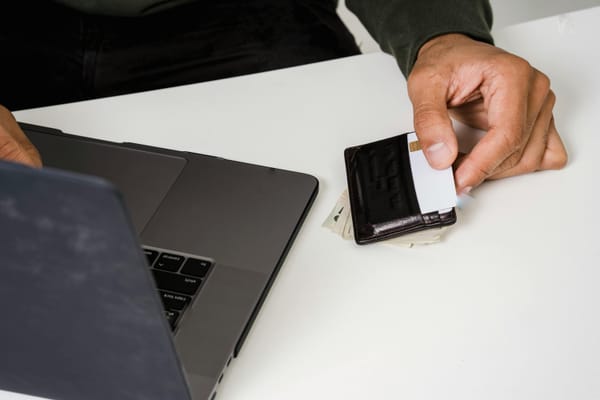Breaking Barriers: Empowering Women Entrepreneurs with Cybersecurity Insights

I've been a freelance content writer for Bitdefender since 2017, and during this time, I've written about, appreciated, and enjoyed most of their products. So yes, I'm biased—but hear me out.
When Bitdefender launched Bitdefender Ultimate Small Business Security, I felt the need to do more than write about the product. I became deeply passionate about it, and for good reason. First, it's personal: I'm also a (very) small business owner, and I understand the challenges that come with protecting what you've built. Second, as a woman, I've observed that cybersecurity has long been viewed as a "men's field." I believe this perception must—and will—change as more women engage with technology and solutions become more accessible in terms of user experience.
There's absolutely nothing wrong with asking for help if you have a cybersecurity-savvy friend or partner to guide you. But if you don't, know this: you can do it yourself. Cybersecurity solutions today are no longer complicated to implement or use. The biggest hurdle is overcoming the outdated belief that they are, a mindset that too often stops people from taking the first step.
Because of this, I felt a natural urge to talk about cybersecurity with other (existing or future) business owners. It's about sharing what I've learned and empowering others to protect their businesses from online threats with confidence and ease.
Owning a Business Is No Small Feat
Last week, I volunteered to give a presentation about why and how we can protect our small businesses. The event focused on practical steps for launching a business in Denmark, the country I live in.
The audience was a group of internationals and expats like me who moved here for various reasons and are starting over from scratch. There were about 20 participants, and the majority were women.
Seeing so many entrepreneurial women filled me with excitement. I believe we're still far from achieving universal gender equality in entrepreneurship and breaking into what has traditionally been considered a "man's world" is no easy feat. But we've come a long way. Consider this: it was only in 1988 that women in the U.S. were allowed to get a business loan without a male co-signer. Women entrepreneurs still face barriers and stereotypes that are not talked about enough.
In recent years, however, women have been starting their own businesses in stride, leaving traditional 9-to-5 jobs to follow their passions and become business owners. In fact, statistics show that women are now more likely to start a business than men.
In the U.S., 43.4% of small businesses are owned by women (SBA). Their top motivations include pursuing their passion, gaining financial independence, and increasing flexibility. As of 2023, there are over 13 million women-owned businesses in the U.S., generating $1.9 trillion annually.
This reflects an encouraging trend: women are increasingly taking charge in the business world. Over the last five years, women-owned businesses have grown by 21%, compared to just 9% for all businesses (score.org).
The top three motivations for women starting their own businesses are pursuing their passion, gaining financial independence, and increasing their flexibility. 29% of female entrepreneurs are also driven by a desire to contribute to positive social change—a trait less common among their male counterparts (23%, according to HSBC).
In Europe, the trends are similar. In 2022, the EU had 32.3 million enterprises, employing 160 million persons (Eurostat). Of that total, 99% were micro and small enterprises employing up to 49 persons. Women make up about 30% of all entrepreneurs in Europe, according to the European Commission's 2022 report.
Yet, challenges remain—particularly in funding. Women-founded companies in Europe received only 1% of total venture capital investment in 2021. (European Investment Bank)
A Real Need for Support for All Entrepreneurs
I hope we can move the gender equality clock forward soon, even if it's just one step at a time. In the meantime, I'm committed to supporting women entrepreneurs to safeguard their businesses.
This was the first in-person presentation I've ever delivered for Bitdefender, and I sincerely hope there will be more to come. I guess this is what contributing to positive social change means for me as a cybersecurity content writer.
My message was simple:
"I'm not here to scare you with all the cyber threats targeting small business owners. I'm here to help you protect yourselves. Because you cannot protect yourself against something you don't know about."
I covered the most common cyber threats small businesses face, including scammers and impersonators, how hackers take over social media accounts, emails, and websites, as well as data and reputation protection. I also shared simple steps anyone can take to protect their own data and that of their customers.
As an expat in Denmark, I know firsthand how identifying scams can be even more challenging if you haven't learned Danish yet. Scammers often target expats in Danish, impersonating trusted institutions like the Danish Tax Authority, banks, and health insurance companies. To help the audience, I gathered and shared real-life examples of scam attempts, including screenshots. For instance, Dinero, one of Denmark's most popular accounting software platforms, warns users about scammers trying to sell fake, cheaper subscriptions.
I could have talked for hours about the subject, trying to convince them:
- No one is too small to be targeted, not even solopreneurs.
- Scammers and impersonators are real dangers, but taking a few extra seconds to verify communication—by opening a new tab to check accounts directly or using tools like Bitdefender Scamio—can make all the difference.
- Protecting all devices is essential. Many participants admitted they didn't have any security software on their phones.
- Passwords matter. Strong, unique passwords should always be used, and they should be updated after breach alerts—preferably received through a digital identity monitoring solution, not from the news (because by then, it's often too late).
I was delighted when one participant said, "My boyfriend is in charge of cybersecurity, but I'll tell him about Bitdefender Digital Identity Protection."
According to the Small Business Index, six in ten small business owners are concerned about cybersecurity threats. Now is the time to turn those concerns into action. By protecting our businesses, we can focus on the good ideas and changes we aim to bring into the world.
Resources for Further Protection:
tags
Author
Cristina Popov is a Denmark-based content creator and small business owner who has been writing for Bitdefender since 2017, making cybersecurity feel more human and less overwhelming.
View all postsRight now Top posts
How Do You Manage Your Passwords? We Ask Netizens
December 18, 2025
Cybercriminals Use Fake Leonardo DiCaprio Film Torrent to Spread Agent Tesla Malware
December 11, 2025
FOLLOW US ON SOCIAL MEDIA
You might also like
Bookmarks









